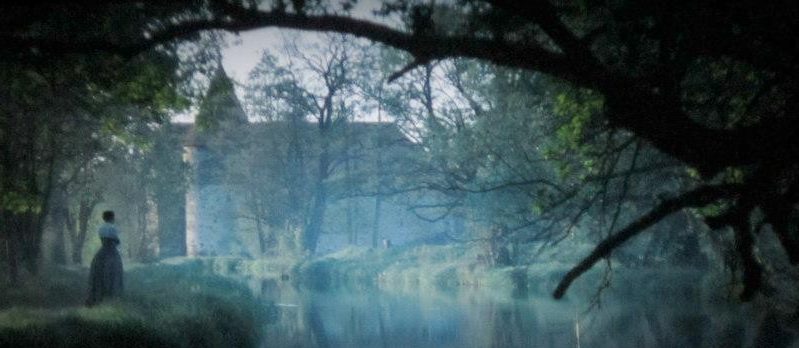I took great pleasure in A ROYAL AFFAIR. For one thing, it acquainted me for the first time with an historical event of considerable drama and importance, involving a struggle for the throne of Denmark that was a sort of proxy for the conflict between reaction and the Enlightenment that would lead just a few years later to both the American and the French Revolutions. The bare bones of it is that Johann Friedrich Struensee, physician to the mentally inept king Christian VII, takes effective power over a conservative kingdom and begins a process of political and social liberalization. As a result of an affair with the kingdom’s English-born queen Caroline Mathilde, Struensee’s enemies engineer his downfall and restore a reactionary regime (if only for a while).
It is exceptionally dramatic, and not just due to the literary license of a complex dance of private passions and public lives – the interiority of human experience set against the exteriority of ceremony – that leads to a denouement worthy of The Tudors at its most lurid. The historical reproduction of Nikolaj Arcel’s film is exquisite; the images are lush and painterly without destroying the humanity of it; if anything, the visual richness serves as a reminder of the social forms into which the protagonists are expected to fit.
As the queen, Alicia Vikander is near perfect, not only very beautiful but with a sense of how the inner life crosses the face in such a way as to be recognizable to those who are sensitive to it but elusive to a benighted observer. (This actress is also one of the best things about the current Anna Karenina, in which she plays Kitty.) Mads Mikkelsen, so memorable as the Bond villain who cried blood in Casino Royale, has as the queen’s lover that queasy combination of attractiveness and repulsiveness that signals immediately the doom to which the liaison is likely to lead.
I think it was their acting that I enjoyed most of all, and it helped that it was refreshingly spoken in the languages of the event itself, avoiding the not so easily finessed tension between translated dialogue and cinematic verisimilitude that mars your average historical film.
Check listings for viewing options.

One response to “A Royal Affair”
[…] is heartbreakingly good in the part. I first saw her in two historical films, Anna Karenina and A Royal Affair, to which she lent an uncommon subtlety and alertness. She brings the same, and more, to the […]